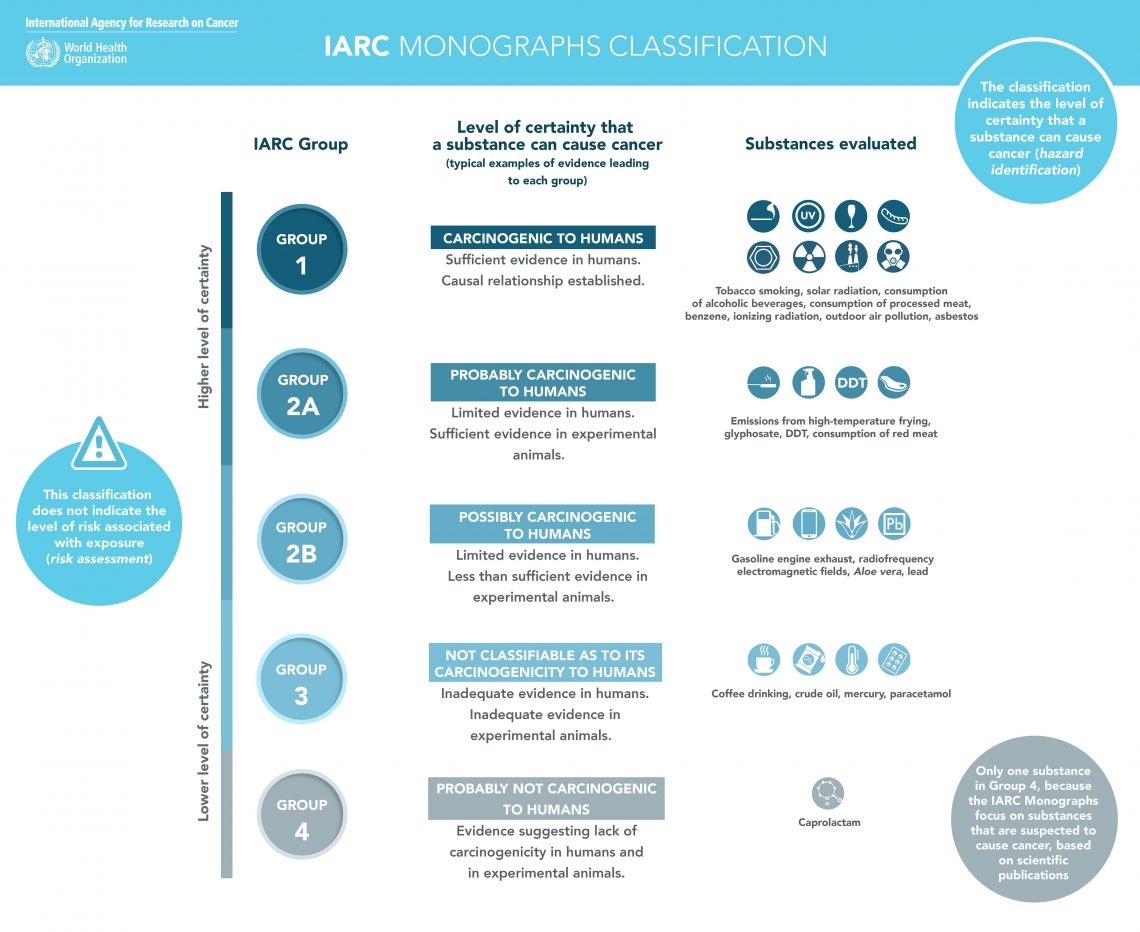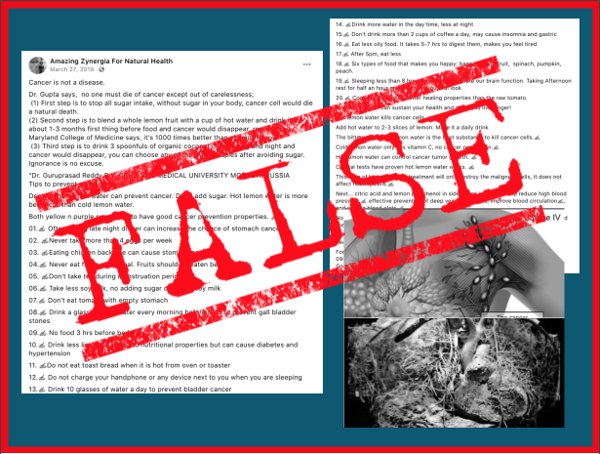A one-year old online article, which rehashes a 2015 Facebook (FB) post of ABS-CBN magazine health show Salamat Dok, misleadingly equates the effect of eating three pieces of hot dogs to smoking a pack of cigarettes when it comes to acquiring cancer.
Balitang Viral (balitangviral.com)’s write-up made the rounds on the Web over a month after a hot dog brand in the Philippines tested positive for African Swine Fever (ASF).
STATEMENTS
The article, “Did You know: Processed Food is Cause of Cancer and 3 Hotdogs are Equivalent to 1 pack of Cigarette (sic),” made seven claims:
– “Three pieces of hot dogs are equivalent to one pack of cigarettes.”
– “Frequent consumption of hot dogs could cause leukemia and brain cancer.”
– “Some hot dogs in the US are made of skin, intestines, and crushed bones of meat. Others can be mixed into it, and they are not really meat.”
– “The World Health Organization has confirmed that eating canned goods, meat, chorizo, and hot dog could cause cancer. Cancer can also be obtained from processed meat like tocino, longganisa, and others.”
– “There are artificial food colors and preservatives which are not carcinogenic. It is called red 1, and it is okay to use it.”
– “Processed food contains nitrite, which becomes nitrosamine, which is carcinogenic once it enters the human body.”
– “If (animal) liver is mixed into (hot dogs) it and the animal was exposed to arsenic prior, that will be carcinogenic.”
Source: Balitang Viral, Did You know: Processed Food is Cause of Cancer and 3 Hotdogs are Equivalent to 1 pack of Cigarette, Nov. 30, 2019
Five of the seven claims were directly copied from Salamat Dok’s FB post.
FACTS
The International Agency for Research on Cancer (IARC), the World Health Organization’s (WHO) cancer research arm, categorized processed meat as “carcinogenic” to humans and was placed in the same category as tobacco smoking. The agency’s findings were published in an October 2015 summary and a 2018 full report.
Nowhere in the report did IARC make a direct comparison between the effect of processed meat consumption and smoking — it did not equate consuming three pieces of hot dogs to smoking a pack of cigarettes.
Processed meat, as defined by the IARC, is any meat which went through the process of “salting, curing, fermentation, smoking, or other processes” either for flavor enhancement or for food preservation. It includes hot dogs, canned goods, tocino,longganisa, and other ‘mechanically-separated’ meat and poultry.
Meanwhile, red meat, which IARC classified as “probably carcinogenic,” pertains to “unprocessed mammalian muscle meat” which is usually cooked first before being consumed. Examples of this are pork, beef, lamb, horse, and goat meat.

Scientists say available evidence show processed meat may cause colorectal cancer. However, although an association between processed meat and stomach cancer was found, evidence for it is still “not conclusive.”
Processed meat is not linked to leukemia (cancer of the body’s blood-forming tissues) or brain cancer, contrary to balitangviral.com’s claims.
In a Question and Answer fact sheet, IARC clarified that while processed meat and tobacco smoking are in the same “carcinogenic to humans” category, “this does NOT mean that they are all equally dangerous.”
IARC’s classifications are based on the strength of scientific evidence available proving that an agent causes cancer, not on the amount of risk each agent poses to humans.
However, several international media outlets highlighted how processed meat and tobacco smoking are in the same IARC category. This includes Salamat Dok, which published its FB post a month after IARC released their report.
Medical professionals called out the news reports, saying these contained “sensational headlines spreading a very different message: processed meat kills, like tobacco smoking.” They clarified that “meat consumption is not tobacco smoking.”
“It is therefore crucial to underline that the risk of cancer in relation to meat is—both at an individual and at a population level—extremely limited as compared to that of (cigarette) smoking.”
Source: International Journal of Cancer: Letter to the Editor, Meat consumption is not tobacco smoking, Feb. 25, 2016
The three remaining claims of Balitang Viral’s article and Salamat Dok’s post are either false or need additional context.
On food coloring “Red 1” being “okay to use”
This is false. Artificial coloring Red 1 was bannedin 1961 as it could cause liver cancer. The revised April 2019 copy of the United States Food and Drug Administration (FDA) Code of Federal Regulations has also ordered the cancellation of certificates issued for color additive “Red No. 1,” and the use of it will be considered a form of adulteration.
On processed food containing nitrite, which becomes a carcinogenic substance called nitrosamine
Nitrite is an acceptable curing substance applied to red and processed meat for both preservation and coloring purposes. However, there is a possibility that nitrites become nitrosamines if put under acid conditions. Nitrosamines contain nitroso compounds, which, according to the 2015 WHO report, can be formed during the processing of meat.
Nitrosamine impurities are considered by the WHO as “probable human carcinogens.”
On animal liver exposed to arsenic, causing it to be carcinogenic
Arsenic is a heavy metal compound that has been declared by IARC as carcinogenic to humans. Arsenic exposure happens most often through the intake of contaminated water, and the consumption of food exposed to arsenic-contaminated water.
However, it has been observed that arsenic exposure by ingestion of food “contributes a relatively small cancer risk” to residents of areas with “very high” arsenic concentrations in their drinking water, as stated in a 2012 IARC report.
Sources
International Agency for Research on Cancer, IARC Monographs evaluate consumption of red meat and processed meat, Oct. 26, 2015
International Agency for Research on Cancer, Red Meat and Processed Meat, 2018
World Health Organization, Q&A; on the carcinogenicity of the consumption of red meat and processed meat, October 2015
The Telegraph, Processed meat ranks alongside smoking as major cause of cancer, World Health Organisation says, Oct. 26, 2015
The Guardian, Processed meats rank alongside smoking as cancer causes – WHO, Oct. 26, 2015
Science Media Center, Expert reaction to IARC classification of processed meat as “carcinogenic to humans” and red meat as “probably carcinogenic to humans,”Oct. 26, 2015
International Journal of Cancer: Letter to the Editor, Meat consumption is not tobacco smoking, Feb. 25, 2016
Center for Science in the Public Interest, Banned Additives, n.d.
United States Food and Drug Administration, CFR – Code of Federal Regulations Title 21, April 1, 2019
World Health Organization, Information Note Nitrosamine impurities, n.d.
World Health Organization,Arsenic, Feb. 15, 2018
International Agency for Research on Cancer, Arsenic, metals, fibres, and dusts, 2012
(Guided by the code of principles of the International Fact-Checking Network at Poynter, VERA Files tracks the false claims, flip-flops, misleading statements of public officials and figures, and debunks them with factual evidence. Find out more about this initiative and our methodology.)




